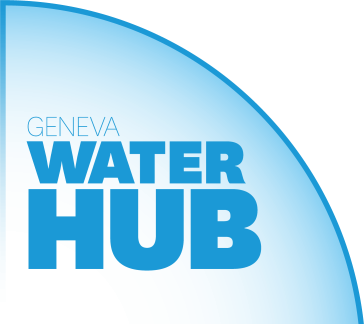
The Global Observatory for Water and Peace: Towards Effective Transboundary, Intersectoral and Local Water Cooperation
Description de l'événement
L'eau devient une source croissante d'instabilité sociale, économique et politique, exacerbée par le changement climatique, qui peut être un facteur d'entraînement supplémentaire pour les migrations et les conflits, ce qui compromet de nombreux objectifs de l'Agenda 2030. Il convient donc d'accorder une attention particulière à la résolution pacifique et efficace des conflits liés à l'eau dans une dynamique préventive. L'eau peut être un outil puissant pour induire la coopération entre les États et entre les secteurs concurrents au sein des États. C'est avec cette vision positive que la Suisse a soutenu la création du Geneva Water Hub. Le Sénégal et la Jordanie, entre autres, sont des partenaires du Geneva Water Hub et s'engagent à mettre en lumière la relation entre l'eau et la paix.
Similarly, and in line with the commitment to the agenda of water and peace, the Global High-Level Panel on Water and Peace (HLPWP) was launched by fifteen countries in 2015. Its final Report and recommendations emphasized the role of water cooperation at all levels for peace and security. This was also endorsed by the UN-World Bank Global High-Level Panel on Water.
The Geneva Water Hub, in its role as Secretariat to the Panel, is implementing some of the recommendations including the establishment of the Global Observatory for Water and Peace (GOWP) and the Safe Space for the inter-sectoral and cross-border “pre-negotiation” with the objective of carrying forward cross-border and /or cross-sectoral bankable projects.
La Convention sur la protection et l'utilisation des cours d'eau transfrontières et des lacs internationaux (Convention sur l'eau) et la Convention sur le droit relatif aux utilisations des cours d'eau internationaux à des fins autres que la navigation (Convention des Nations unies sur les cours d'eau) constituent des cadres importants pour engager la coopération transfrontière dans le domaine de l'eau. Par conséquent, l'Observatoire mondial soutiendra leur mise en œuvre et facilitera et encouragera la coopération transfrontalière dans le domaine de l'eau sur la base des principes du droit international inhérents à ces deux conventions. L'Observatoire mondial de l'eau et de la paix peut encourager l'inclusion des dispositions de ces accords dans les projets et initiatives transfrontaliers.
Les objectifs de cet événement parallèle sont triples : 1) présenter l'Observatoire mondial pour l'eau et la paix, ses partenaires régionaux actuels et les activités proposées ; 2) discuter de la manière dont l'Observatoire mondial peut soutenir la mise en œuvre des deux conventions mondiales, et 3) explorer les partenaires potentiels intéressés par cette plate-forme mondiale en Asie centrale, ainsi que les activités possibles dans la région.
The expected results include the sharing of information on this important development on water cooperation and the establishment of a network to the global platform based in Geneva, with strong analytical capacities to draw attention and assist in situations where water can serve as a vehicle of peace.
Le flyer de l'événement est disponible ci-dessous.
Programme
Chair: Ms. Mara Tignino, Reader, Faculty of Law, University of Geneva and Senior Legal Advisor, Geneva Water Hub. The Global Observatory for Water and Peace - Mr Christophe Bösch, Strategic Advisor, Geneva Water Hub.
Panelists: Mr. Marwan Al-Raggad - Professor, University of Jordan and Executive Director, Inter-Islamic Network on Water Resources Development and Management (INWRDAM), Jordan; Mr. Niokhor Ndour – Director of Water Resources Management and Planning, Ministry of Water and Sanitation, Senegal, Ms. Dinara Ziganshina – Deputy Director, Scientific Information Center of Interstate Commission for Water Coordination in Central Asia (SIC ICWC).
Questions and answers
Conclusions: Mr. Marco Keiner, Director of the Environment Division, United Nations Economic Commission for Europe (UNECE).

